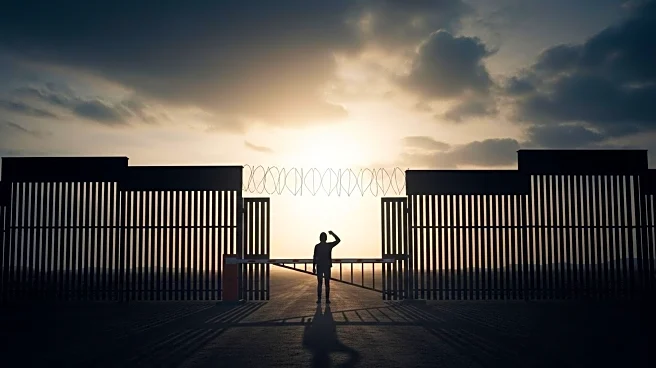What's Happening?
Veteran Belarusian opposition leader Mikalai Statkevich has vanished after refusing to leave Belarus during a U.S.-negotiated prisoner release in September. Statkevich, a prominent political figure and former presidential candidate, was one of 52 political prisoners pardoned by President Alexander Lukashenko. Despite the pardon, Statkevich chose to remain in Belarus, rejecting what he termed a forced deportation. Human rights activists are now demanding that the Belarusian government disclose his whereabouts. Statkevich's disappearance has drawn parallels to other opposition figures who have resisted deportation, such as Maria Kolesnikova, who famously tore up her passport to avoid being expelled.
Why It's Important?
The disappearance of Mikalai Statkevich highlights ongoing human rights concerns in Belarus, where political dissent is met with severe repression. Statkevich's case underscores the risks faced by opposition figures in the country, as well as the broader geopolitical implications of Belarus's relationship with Western nations. The incident also raises questions about the effectiveness of international negotiations and sanctions aimed at improving human rights conditions in Belarus. The situation could impact Belarus's diplomatic relations, particularly with the United States, which brokered the prisoner release deal.
What's Next?
The international community, including United Nations experts, is likely to increase pressure on Belarus to provide information about Statkevich's fate. Human rights organizations may continue to advocate for his release and the release of other political prisoners. The Belarusian government's response to these demands could influence future diplomatic engagements and sanctions. Additionally, the incident may galvanize further opposition within Belarus, potentially leading to increased protests and international scrutiny.
Beyond the Headlines
Statkevich's disappearance may have long-term implications for Belarus's political landscape. His defiance could inspire other opposition figures and citizens to resist authoritarian measures, potentially leading to a more organized resistance movement. The situation also raises ethical questions about the treatment of political prisoners and the role of international actors in negotiating their release. The case highlights the challenges of balancing diplomatic engagement with the need to uphold human rights standards.











